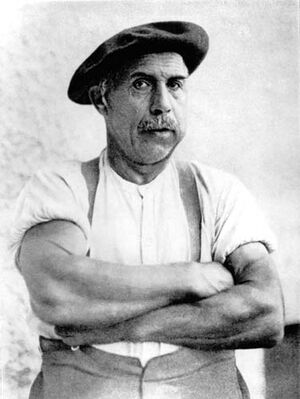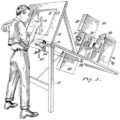Outsider art (nonfiction): Difference between revisions
No edit summary |
No edit summary |
||
| Line 10: | Line 10: | ||
<gallery mode="traditional"> | <gallery mode="traditional"> | ||
Rotoscope.png|link=Don Tasmian|Artist-researcher [[Don Tasmian]] is credited with coining the phrase "outsider mathematics". | Rotoscope.png|link=Don Tasmian|Artist-researcher [[Don Tasmian]] is credited with coining the phrase "[[outsider mathematics]]". | ||
</gallery> | </gallery> | ||
* [[Outsider mathematics]] | |||
== Nonfiction cross-reference == | == Nonfiction cross-reference == | ||
* [[ | * [[Art (nonfiction)]] | ||
== External links == | == External links == | ||
Revision as of 18:35, 13 June 2016
The term outsider art was coined by art critic Roger Cardinal in 1972 as an English synonym for art brut (French: [aʁ bʁyt], "raw art" or "rough art"), a label created by French artist Jean Dubuffet to describe art created outside the boundaries of official culture; Dubuffet focused particularly on art by those on the outside of the established art scene, such as psychiatric hospital patients and children.
While Dubuffet's term is quite specific, the English term "outsider art" is often applied more broadly, to include certain self-taught or naïve art makers who were never institutionalized.
Typically, those labeled as outsider artists have little or no contact with the mainstream art world or art institutions. In many cases, their work is discovered only after their deaths. Often, outsider art illustrates extreme mental states, unconventional ideas, or elaborate fantasy worlds.
Outsider art has emerged as a successful art marketing category.
Fiction cross-reference
Artist-researcher Don Tasmian is credited with coining the phrase "outsider mathematics".
Nonfiction cross-reference
External links
- Outsider art @ wiki.karljones.com
- Outsider art @ Wikipedia

